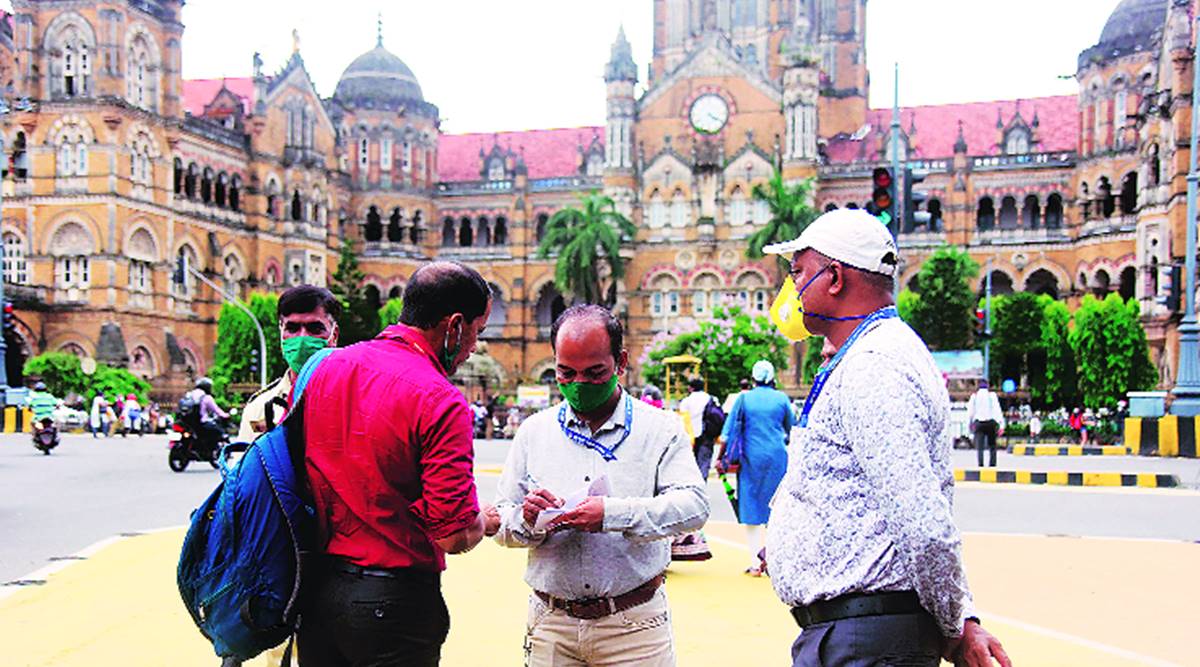On Thursday, Mumbai recorded 2,412 new infection cases, taking its total virus count to 1.78 lakh. Of these 32,959 are active cases.

Grocery stores, market places and parks are emerging as trouble spots for Covid-19 transmission, with civic officials noticing maximum violation of physical-distancing and face mask-wearing norms in these areas.
On Thursday, Mumbai recorded 2,412 new infection cases, taking its total virus count to 1.78 lakh. Of these 32,959 are active cases.
A Covid-19 camp organised at a municipal market near Matunga railway station in the last two days has found at least 28 hawkers and shop owners found positive for the virus, officials said. “It is one of the biggest markets in the area. It has been observed that many people who are visiting these markets do not follow safety measures. Apart from the hawkers and shopkeepers we found Covid-19 positive, the number of patients around the area are also increasing,” local corporator Nehal Shah said.
Gaikwad said they were now penalising such shop owners. At Priyadarshini park, people walking or exercising in groups are also fined. “Only those jogging alone are not penalised. People are getting careless about Covid-19,” he added.
The civic body has also shut the Girgaum beach and asked police to patrol Marine Drive to avoid overcrowding. At Juhu beach, however, evening strollers and local residents continue to visit without wearing masks. Medical officer Dr Gulnar Khan said the habit of wearing masks is on the wane. By 7 pm, police have to be called to drive people away from the beach.
“People are behaving as if there is no coronavirus,” said Dr Jeetendra Jadhav, medical officer at L ward, including parts of Kurla. Along with the ward’s assistant commissioner, Jadhav has been visiting markets in the area every day to ask grocery shop owners to wear masks.
At Mulund, more positive cases are being detected near the station area. “After relaxations in lockdown norms, shops have opened in that area and many licenced hawkers have started their business. When we organised a testing camp, at least 40 people, mostly hawkers, were found positive,” Prakash Gangadhare, BJP corporator from Mulund, said.
Gangadhare added, “Following a rise in the cases, I started removing hawkers from the area. But the problem is now people don’t have money to eat, so if we shut their business, they will die due to hunger.”
Contact-tracing, too, has become difficult with inter-ward travelling for business or office more common. Civic officials said earlier, during the lockdown, contacts — mostly neighbours, local security guards or nearby store owners — were easy to trace. “Now, a person may take multiple mediums of transport to reach office/workplace and stop by at various places. We can only inform the ward where the patient’s office is, but tracking transport routes is impossible,” Gaikwad said.
While BMC expected cases to rise due after salons reopened, so far, parlours have not posed a major threat. Harsh Baijnath, who runs a salon in Juhu, said they have five staffers and none have any Covid-19-like symptoms so far. The salon notes temperature and provides sanitiser to each customer Before they step inside. Civic officials said they have instructed salons staff to wear gloves, especially during services like waxing and threading.
